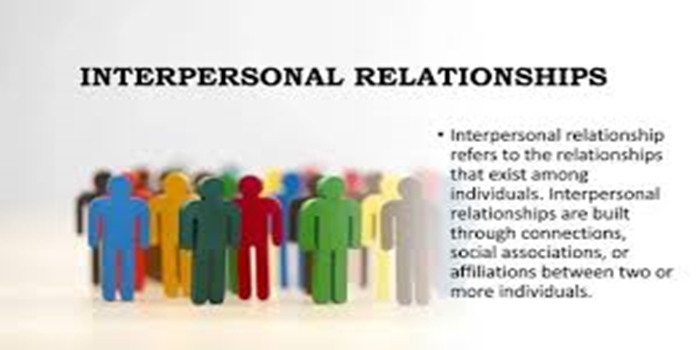In this article, we discussed the meaning of interpersonal relationships, the types, the benefits, the behavior, the important, we also talked about the stages.
Definition
Interpersonal Relationships are the social and emotional interactions that people have with each other. They involve developing and maintaining connections with others, and can include a variety of relationships such as friendships, family ties, romantic relationships, and work relationships
Some key behaviors in interpersonal relationships include:
Being open, friendly, and professional
Cooperating and working to gain support
Discussing subjects constructively
Fostering cooperation, collaboration, and communication
Sharing personal and intimate information
There are many types of interpersonal relationships, including:
Family
Friends:
Romantic partners
Colleagues
Platonic relationships
Casual relationships: Relationships with acquaintances or casual friends
Professional relationships: Relationships with colleagues, bosses, and subordinates in the workplace
Interpersonal relationships can have many benefits, including:
Well-being: Strong relationships can make you feel happier and more secure. They can also help you manage stress and promote overall well-being.
Sense of belonging: can give you a sense of belonging.
Resilience: Close relationships can help you be more resilient during times of crisis.
Self-esteem: it can improve your self-esteem.
New perspectives: You can gain access to new perspectives and ideas through interpersonal relationships.
Networking: Positive relationships at work can lead to networking opportunities, which can lead to career opportunities and new social connections.
Improved relationships outside of work: Social skills learned in the workplace can be applied in other areas of life, leading to more fulfilling relationships
Interpersonal relationships are important because they can help you:
Improve your mental health
Strong relationships can help you feel less lonely and depressed, and can improve your outlook on life.
Build resilience
Strong relationships can help you become more resilient to stress.
Be more effective at work
Interpersonal skills like communication, teamwork, and conflict resolution can help you be more effective at work.
Collaborate better
Teams with strong interpersonal relationships can work together more effectively to solve problems.
Interpersonal relationships can go through several stages, including:
Initiating: The first stage of interpersonal relationship development
Experimenting: A stage in the development.
Intensifying: A stage where people share intimate secrets and spend more time together
Circumscribing: A stage where communication decreases and certain topics become restricted
Deteriorating: A stage where relationships decline and may eventually end
Termination: The final stage of development
Other stages of interpersonal relationship development include: Integrating, Bonding, Differentiating, Stagnating, and Avoiding.
Successful relationships may only go through the first three stages, while relationships that end in a breakup will go through all five stages.
Conclusion
Interpersonal relationship develops and maintains effective relationships with others; relates well to people from diverse backgrounds and in different situations; shows understanding, courtesy, tact, empathy, concern, and politeness. Relates to people in an open, friendly, and professional manner.


